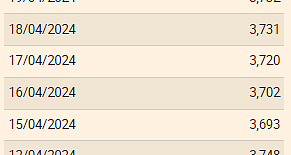Unmotivated, lazy and addicted to social media - there is certainly no shortage of prejudice against Generation Z. Quite a few companies despair of the attitude of young employees. For these so-called post-millennials, leisure seems to be more important than work, and they are not interested in careers anyway. And it gets even thicker. For a long time now, an even greater challenge has been growing up in parents' homes: the Alpha Generation (born in 2010 or younger).
Generation Alpha is the first generation to grow up entirely with smartphones and tablets. The first generation to play online games before they can even speak. Instead of making an appointment, she sends WhatsApp messages. And if anyone is still interested in news, it's on Instagram. One thing is clear: When it comes to digital media, the Alpha generation is unrivaled.
But when it comes to motivating the children of the alpha generation to learn, many parents despair (admittedly: sometimes we do too). The youngsters would rather play Minecraft for hours than practice math. Instead of learning poems, pop songs are sung and danced for Tiktok. And instead of training for top performance in sports, Fortnite skills are being honed. Can the Alpha Generation still be motivated to perform?
Of course! First of all, we should make it clear: Every child is born motivated. Nature created the motivation in us humans, it is the source of energy for our actions. Only the motivation to discover things, to break new ground and to get to know the world has made us what we are today. Motivation is in all of us - and of course also in the Alpha Generation.
And yet you have probably experienced it yourself when someone has told you that your child is not motivated. That it is disinterested or lazy. As if lack of motivation is a character description. Rather, it is a sign that motivation that once existed was destroyed by negative learning experiences. For example, through bad grades or a lack of recognition for your own efforts. Or by depriving young people of any personal responsibility. That they are hardly allowed to decide for themselves how they learn.
And what do we parents think of? We try to motivate our junior staff through external incentives. As if diligence cards, grades and grades at school weren't enough extrinsic incentives, we try to make adjustments with certificate money and small rewards for good class work. Or about penalties if things don't go smoothly. And may even have noticed that it works, at least in the short term. But this form of extrinsic motivation harbors a great danger: we condition our children to work hard for something in return. And thus train them to lose their inner motivation.
The key to lasting performance lies precisely in this inner drive. Many school performance studies have shown how important this so-called intrinsic motivation is for the performance of students. Even children with low intellectual capacity can achieve good results with sustained high levels of motivation. And it is precisely this intrinsic motivation that can be awakened. Because children and young people feel competent to master a task. Because they have the feeling that they can decide for themselves what and, above all, how they learn.
If you are interested in video games, you cannot ignore "Fortnite": 250 million people worldwide play the game. Marco Tito Aronica, editor at "spieletipps.de", explains the gameplay of "Fortnite" and what's behind the hype.
Source: WORLD
Perhaps Generation Alpha is showing us how learning should actually work in the 21st century. Instead of agonizing over the agony of memorizing poems from centuries past, as many generations have done before them, children today prefer to create their own music videos, learning lyrics while doing so, and developing their own dance choreographies on top of that. And show us the power of autonomous learning. How motivated would students be to learn if they could design their own lessons in the same way instead of just concentrating on good grades.
Computer games like Fortnite, on the other hand, manage to constantly adapt to the player's abilities. As a result, they always remain challenging but doable. And in this way we repeatedly create a sense of achievement that can be traced back to improving our own skills. How motivating it would be if children were just as constantly learning at their individual skill level. What if they were challenged, but at the same time had the chance of regular success?
The key to success lies in motivation. Generation Alpha shows us how outdated our learning concepts are. Because they are static and not based on the individual abilities of the child. Because they take every space for autonomy. Digital media and online games have long shown us how children can be motivated. Time for a fresh start! By being open to what really interests our children. Open to what our children feel competent in and what they grow with. And so give them new challenges again and again. Gladly also completely analogue. Perhaps Generation Alpha is showing us how learning could work in the future.
Sebastian Dettmers is CEO of the job portal Stepstone (belongs to Axel Springer like WELT) and author of the current bestseller “The Great Unemployment” (2022). Swantje Dettmers studied psychology and later did his doctorate at the Max Planck Institute for Human Development. As a scientist, she has researched, among other things, homework and the importance of the parental home for school education. Today she works as a psychological consultant in a foundation for talent recognition and promotion.

 The Euribor today remains at 3.734%
The Euribor today remains at 3.734% Germany: the trial of an AfD leader, accused of chanting a Nazi slogan, resumes this Tuesday
Germany: the trial of an AfD leader, accused of chanting a Nazi slogan, resumes this Tuesday New York: at Columbia University, the anti-Semitic drift of pro-Palestinian demonstrations
New York: at Columbia University, the anti-Semitic drift of pro-Palestinian demonstrations What is Akila, the mission in which the Charles de Gaulle is participating under NATO command?
What is Akila, the mission in which the Charles de Gaulle is participating under NATO command? What High Blood Pressure Does to Your Body (And Why It Should Be Treated)
What High Blood Pressure Does to Your Body (And Why It Should Be Treated) Vaccination in France has progressed in 2023, rejoices Public Health France
Vaccination in France has progressed in 2023, rejoices Public Health France Food additives suspected of promoting cardiovascular diseases
Food additives suspected of promoting cardiovascular diseases “Even morphine doesn’t work”: Léane, 17, victim of the adverse effects of an antibiotic
“Even morphine doesn’t work”: Léane, 17, victim of the adverse effects of an antibiotic MEPs validate reform of EU budgetary rules
MEPs validate reform of EU budgetary rules “Public Transport Paris 2024”, the application for Olympic Games spectators, is available
“Public Transport Paris 2024”, the application for Olympic Games spectators, is available Spotify goes green in the first quarter and sees its number of paying subscribers increase
Spotify goes green in the first quarter and sees its number of paying subscribers increase Xavier Niel finalizes the sale of his shares in the Le Monde group to an independent fund
Xavier Niel finalizes the sale of his shares in the Le Monde group to an independent fund Owner of Blondie and Shakira catalogs in favor of $1.5 billion offer
Owner of Blondie and Shakira catalogs in favor of $1.5 billion offer Cher et Ozzy Osbourne rejoignent le Rock and Roll Hall of Fame
Cher et Ozzy Osbourne rejoignent le Rock and Roll Hall of Fame Three months before the Olympic Games, festivals and concert halls fear paying the price
Three months before the Olympic Games, festivals and concert halls fear paying the price With Brigitte Macron, Aya Nakamura sows new clues about her participation in the Olympics
With Brigitte Macron, Aya Nakamura sows new clues about her participation in the Olympics Skoda Kodiaq 2024: a 'beast' plug-in hybrid SUV
Skoda Kodiaq 2024: a 'beast' plug-in hybrid SUV Tesla launches a new Model Y with 600 km of autonomy at a "more accessible price"
Tesla launches a new Model Y with 600 km of autonomy at a "more accessible price" The 10 best-selling cars in March 2024 in Spain: sales fall due to Easter
The 10 best-selling cars in March 2024 in Spain: sales fall due to Easter A private jet company buys more than 100 flying cars
A private jet company buys more than 100 flying cars This is how housing prices have changed in Spain in the last decade
This is how housing prices have changed in Spain in the last decade The home mortgage firm drops 10% in January and interest soars to 3.46%
The home mortgage firm drops 10% in January and interest soars to 3.46% The jewel of the Rocío de Nagüeles urbanization: a dream villa in Marbella
The jewel of the Rocío de Nagüeles urbanization: a dream villa in Marbella Rental prices grow by 7.3% in February: where does it go up and where does it go down?
Rental prices grow by 7.3% in February: where does it go up and where does it go down? Europeans: “All those who claim that we don’t need Europe are liars”, criticizes Bayrou
Europeans: “All those who claim that we don’t need Europe are liars”, criticizes Bayrou With the promise of a “real burst of authority”, Gabriel Attal provokes the ire of the opposition
With the promise of a “real burst of authority”, Gabriel Attal provokes the ire of the opposition Europeans: the schedule of debates to follow between now and June 9
Europeans: the schedule of debates to follow between now and June 9 Europeans: “In France, there is a left and there is a right,” assures Bellamy
Europeans: “In France, there is a left and there is a right,” assures Bellamy These French cities that will boycott the World Cup in Qatar
These French cities that will boycott the World Cup in Qatar Serie A: Bologna surprises AS Rome in the race for the C1
Serie A: Bologna surprises AS Rome in the race for the C1 Serie A: Marcus Thuram king of Italy, end of the debate for the position of number 9 with the Blues?
Serie A: Marcus Thuram king of Italy, end of the debate for the position of number 9 with the Blues? Milan AC-Inter Milan: Thuram and Pavard impeccable, Hernandez helpless… The tops and flops of the derby
Milan AC-Inter Milan: Thuram and Pavard impeccable, Hernandez helpless… The tops and flops of the derby Ligue 2: Auxerre leader, Bordeaux in crisis, play-offs... 5 questions about an exciting end of the season
Ligue 2: Auxerre leader, Bordeaux in crisis, play-offs... 5 questions about an exciting end of the season


















